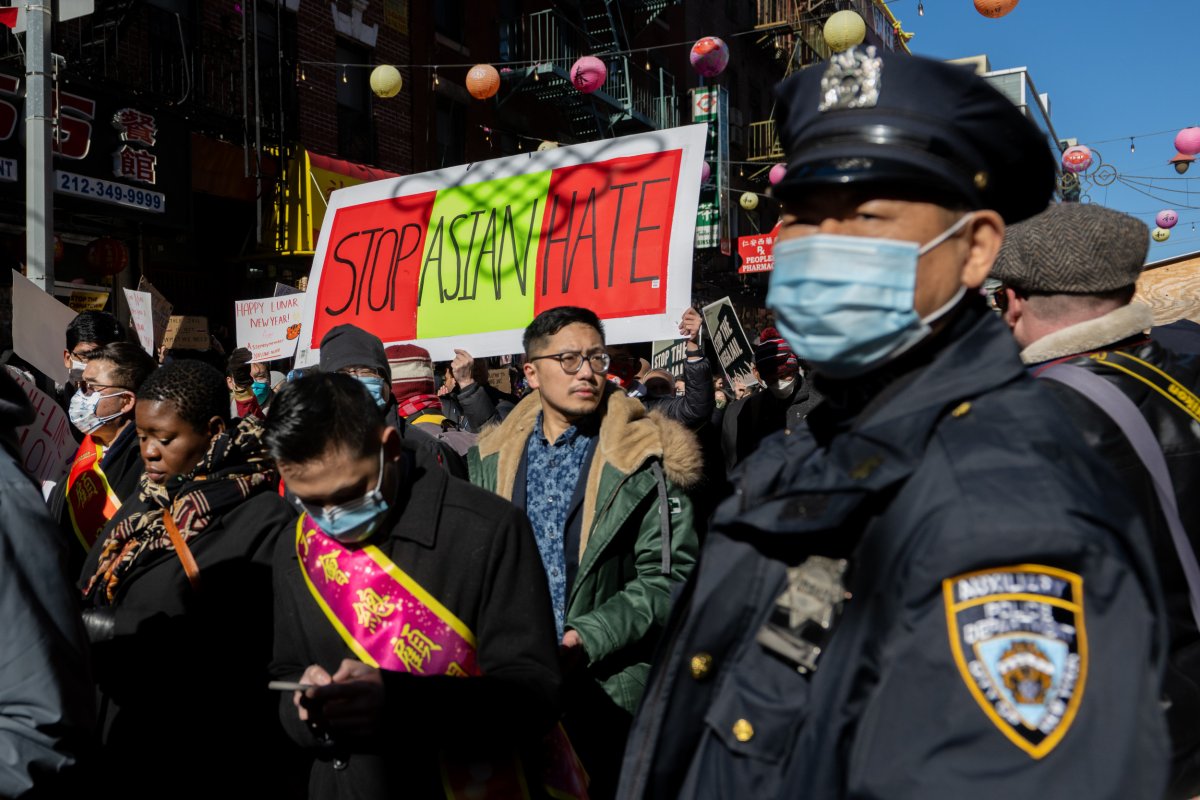Forty years ago, Vincent Chin was murdered in Detroit. He was beaten to death with a baseball bat by two white men. They claimed it was a bar room brawl that escalated into the streets. We know the truth: a Chinese American man was senselessly killed because a wave of anti-Asian hate was gripping America in 1982. We know this because our community has lived through waves of anti-Asian hate many, many times before. And unless we as a society finally confront the root causes of this hatred, it will keep happening.
The problem we are facing is racism: a fear and hatred of fellow Americans because of how they look. The latest iteration of racism's impact is the 300 percent increase in anti-Asian hate crimes over the last year alone. This increase has yet to abate, and it's directly correlated to misplaced blame and harmful rhetoric deployed by former President Trump to divert attention away from his administration's failure to prepare the American people for the severity of the COVID-19 pandemic.
Many were alarmed by the increase in hate and violence against the Asian American and Pacific Islander (AAPI) community. But it did not come as a surprise to those of us within the community, for the simple fact that anti-AAPI violence has been part of American history for centuries.
Back in 1982, the American auto industry was losing business to Japanese manufacturers. Coming out of a gasoline crisis a few years earlier, consumers wanted more fuel-efficient vehicles, and the Japanese were ahead of the U.S. in making what the people wanted. Thousands of auto workers lost their jobs, and politicians from both parties, as well as labor unions, corporate executives and the media spun a narrative about the foreign power that was to blame.
Consumers were implored to "buy American" and to "Look for the 'Made in the U.S.A.' label." Yet policymakers weren't willing to make the necessary investments in infrastructure, innovation and worker training to give us a competitive edge. Instead we were told to blame Japan, our once vanquished foe that was beating us at the game we invented.
It was in this environment that two auto workers who had lost their jobs found themselves sitting at a club next to a guy celebrating his bachelor party. It didn't matter that Vincent Chin was Chinese American, or that he had nothing to do with Japan's auto industry. The guys at the next table were drunk, angry and had an Asian man in their sights. As the fatal blow from a baseball bat came down upon him, Vincent uttered his last words, "It's not fair!"
Nothing about our history in this country has been fair. Though Asian Americans and Pacific Islanders have been part and parcel of the United States since its inception, we are still viewed as perpetual foreigners by far too many of our fellow countrymen.
It has got to stop.

As attacks against the Asian American community become increasingly more common, it is more critical than ever to not only pass legislation that works to address this deeply-rooted racism and discrimination against the AAPI community but also elect leaders who can be the voice for those who have been historically underrepresented.
We believe there are ways we can talk about China's impact on the American economy and policies we can change in the U.S without using xenophobic language and putting Asian American communities at risk.
But this isn't just a matter of political importance; for many, it is a matter of life or death.
Yes, we need to be competitive in the global marketplace, and every person running for office or leading a company should talk about their plans to regain America's edge. But let's be clear about who is accountable for the business practices and policies that have created an uneven playing field. Why blame the people of China and inflame the guilt by association of Asian Americans when it is the actions of American CEOs that put profits over people by sending jobs overseas and exploiting loopholes to avoid paying their fair share of taxes?
To help combat this, the Congressional Asian Pacific American Caucus (CAPAC) issued guidance to every member of Congress on how to talk about China and anti-Asian violence in order to model responsible rhetoric. While it is critical that we continue to speak out against the Chinese Communist Party (CCP) and its leaders when they act against American interests or values, it is critical that we do not use broad language that conflates an American community with a foreign party.
Of course, we must stand up to attacks from all enemies, foreign and domestic. But as we do so, we need to watch our words. Because words matter. They have consequences.
For Asian Americans and Pacific Islanders, they are and have always been a matter of life and death.
Grace Meng is the U.S. Congresswoman for New York's 6th congressional district. Shekar Narasimhan is the founder and chairman of the AAPI Victory Fund.
The views in this article are the writers' own.
Uncommon Knowledge
Newsweek is committed to challenging conventional wisdom and finding connections in the search for common ground.
Newsweek is committed to challenging conventional wisdom and finding connections in the search for common ground.
About the writer
To read how Newsweek uses AI as a newsroom tool, Click here.








